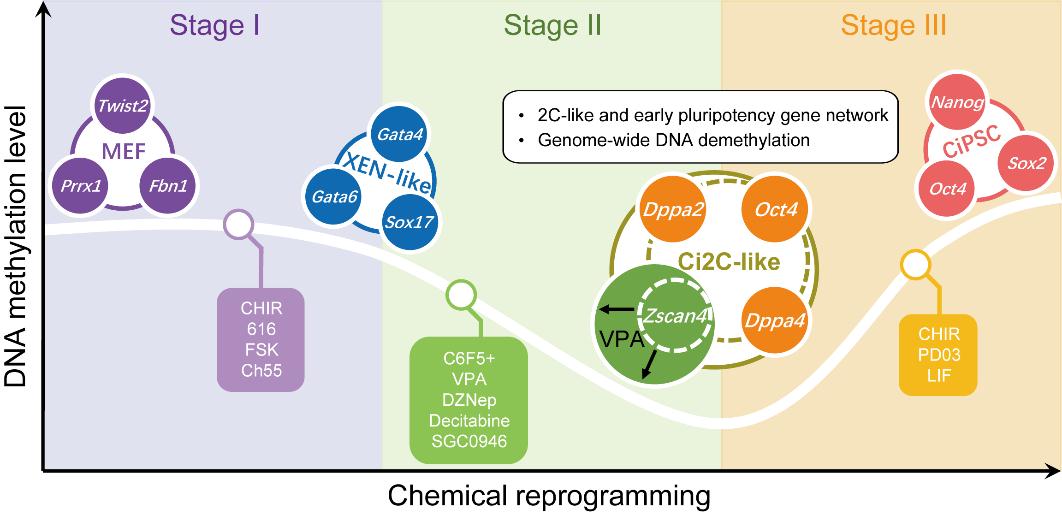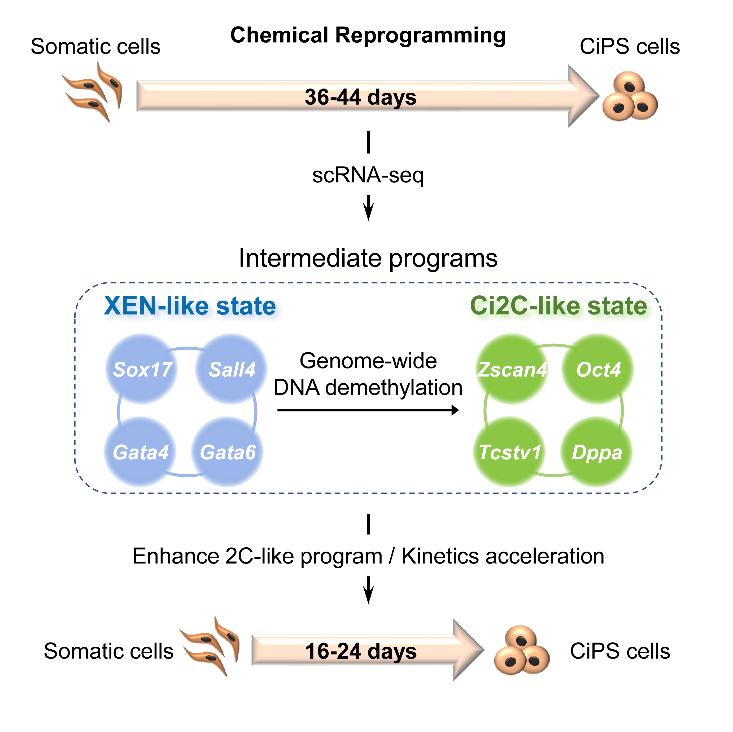PKU Research Teams Reveals New Mechanism of Chemical Reprogramming
Cell Stem Cell published June 21 online an article titled “Single-Cell RNA-Seq Reveals Dynamic Early Embryonic-like Programs during Chemical Reprogramming”, which for the first time looked into chemical reprogramming with single-cell transcriptomic analysis. This article was the result of a joint project by the groups led by Prof. Deng Hongkui of Peking University School of Basic Medical Sciences and Prof. Li Cheng of Peking-Tsinghua Center for Life Sciences.
In the article, the authors identified the major molecular events in chemical reprogramming and revealed how pluripotency network was developed. Based on such findings, the authors were able to optimize chemical induction and accelerate reprogramming.

Molecular pathways and cellular changes in chemical reprogramming
The research also showed genes related to Ci2C-like cells played critical positive roles in the late stage of programming. By activating such genes, the authors were able to remarkably accelerate the chemical reprogramming process, reducing the time required from 40 days to a minimum of 16 days.

This was the seventh paper published by Prof. Deng’s group on chemical reprogramming, which laid a solid foundation for the understanding of cell fate determination and manipulation of cell fate with small molecules.
See full article at https://www.cell.com/cell-stem-cell/fulltext/S1934-5909(18)30280-7.
Written by: Fan Xiaofei
Edited by: Liu Xin


